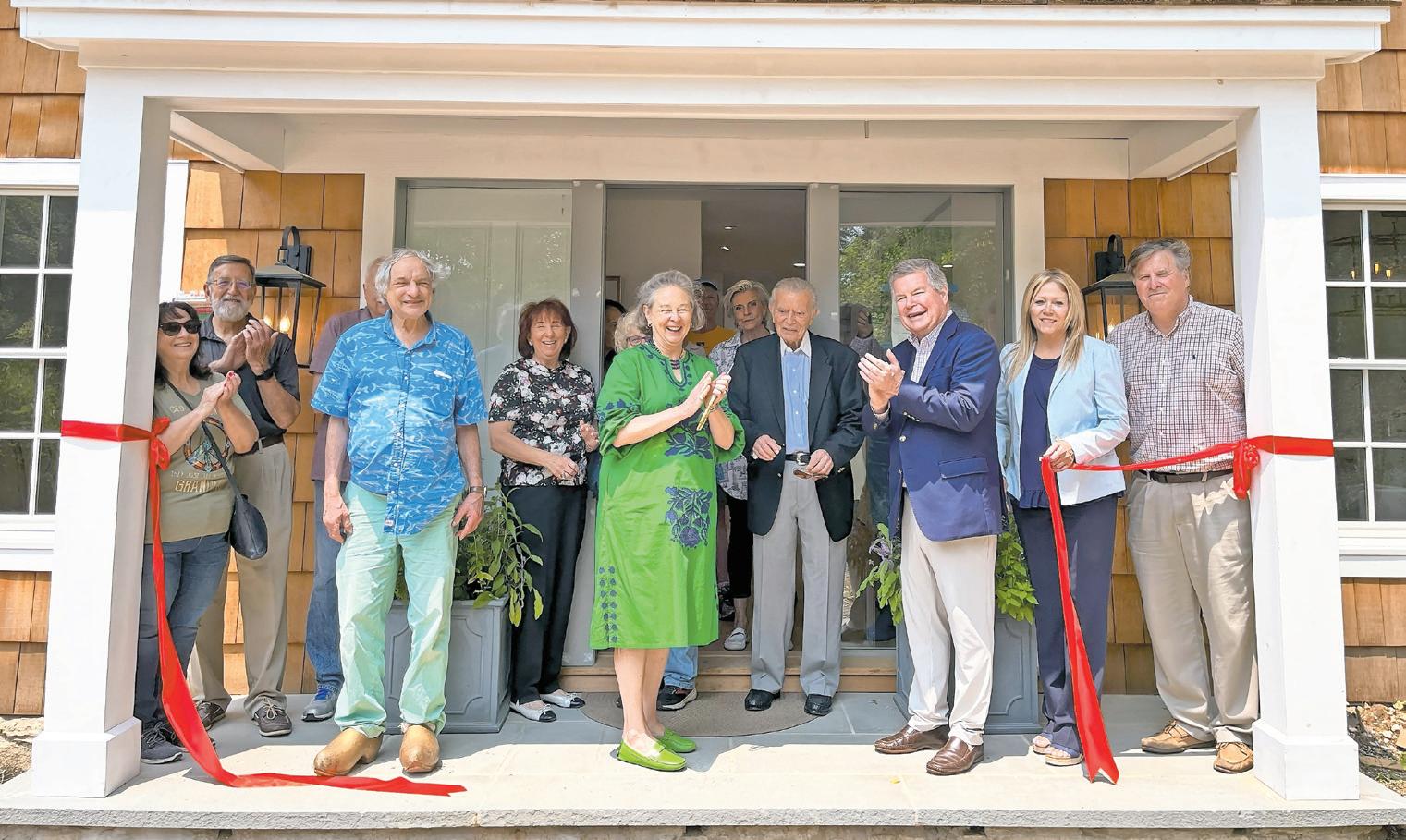
3 minute read
LETTERS
Why are we charged twice for using a credit card?
To the Editor:
I cannot be the only one upset by this new trend of being charged for using a credit card. It started with two different prices for gas. That has now moved to restaurants (including fast food), the service industry (haircuts), car dealerships, doctor’s offices and even religious institutions.
And the charges aren’t consistent: 3 percent here, 3.5 percent there. And who knows if these percentages are accurate? Maybe the actual charges are less, and they’re just padding their profits?
We pay to have a credit card, and we pay to use a credit card.
My wife and I go out for a nice dinner once a week with friends. This would include having a glass of wine with dinner. Well, I will refrain from ordering alcohol from restaurants. Alcohol has a very large profit margin. Would a restaurants rather sell four glasses of wine for $40 or charge the 3.5 percent credit card surcharge?
If enough people start doing this, will restaurants stop passing the credit card processing fees on to patrons? Maybe, maybe not, but it will send a message that we’re tired of being nickeled and dimed for just about everything. Truth be told, all they have to do is raise prices by 25 cents and no one would know the difference.
What’s next? Food costs have skyrocketed since the pandemic. Going to the supermarket is quite expensive. Do people feel safe carrying a lot of cash around? I can foresee the day when supermarkets will be adding the credit card fee.
I have written to our senators, Kirsten Gillibrand and Chuck Schumer. You know what their response was? Crickets. Nothing.
Shouldn’t there be some legislation against this practice? It is a double charge to pay to have a credit card and to pay to use a credit card. But our elected officials choose to ignore this, and let their constituents bear the brunt of it. As usual.
JEFF COHEN Wantagh
ly go to a therapist to talk about job stresses and issues. As a dad, that made me happy that he is mature and strong enough to ask for mental help before an issue corroded into something larger.
For 11 years as a high school English teacher, I took advantage of our social workers by frequently bringing students with issues into their office for help. I was amazed at how comfortable adolescents had become with expressing their feelings and reaching out for help, without making a big deal of it.
These things weren’t talked about when I was in school, and certainly not among friends. Anger was the closest thing to an emotion that a boy could express in front of a group of fellow 10-year-olds.
It’s remarkable that mental health awareness and acceptance has come so far in a few decades. But men remain trapped by clichés of manliness and the stigma of admitting any mental health issue, however brief. We’re supposed to soldier through it, man up, tough it out. There is strength in learning to deal with adversity through perseverance, and there is also astuteness in knowing when something could be wrong and seeking professional help. Cognitively dissonant, we put our heads down and plow through a hardship, but that childish reaction often fails and exacerbates a problem.
Men are generally less likely than women to ask for help for depression or stressful life events. Men downplay symptoms and pretend they’re OK.
According to Mental Health America, more than 6 million American men suffer from depression. Male suicides have increased since 2000.
There are ample places to get more information online. Here are two: MentalHealthAmerica.net and MensHealthNetwork.org.
The biggest step is asking for help.
My dad often said that he made a point of saying “I love you” to my brothers and me, because he didn’t remember his own father ever saying it to him. I smile when I hear my kids say that to each other. Seems pretty normal nowadays, but it wasn’t when my dad was a kid.
I love my kids, and I’m proud my oldest son is seeking mental health help. His actions put the lie to the false narrative that tough guys don’t need help. More men need to follow his example.
Mark Nolan, the editor of the Lynbrook/ East Rockaway and Malverne/West Hempstead Heralds, taught high school English for 11 years. Comments? mnolan@liherald.com.

by Evan Mattioli





